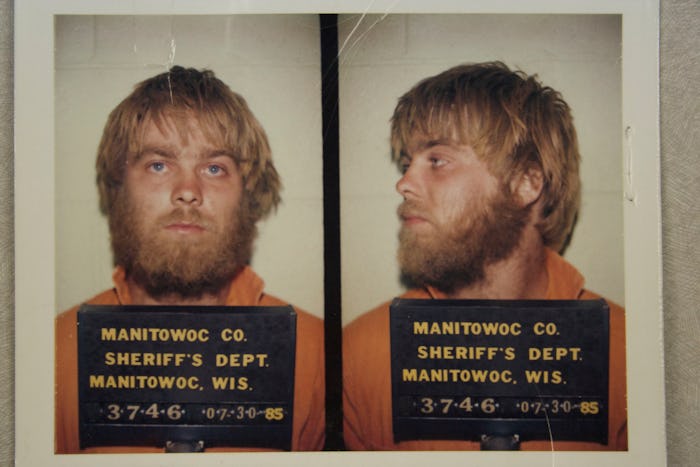Entertainment

White House Responds To Steven Avery Petition & Fans Definitely Won't Be Happy
The popular true crime documentary series Making a Murderer has enraged people across the country and pitted them against the American justice system in Wisconsin. The show, which tells the story of Steven Avery, a man who was wrongfully convicted of a woman's beating a sexual assault, freed by DNA evidence after 18 years in prison, and then convicted of another woman's murder, seems to indicate that Avery may not have committed the murder either. Fans of Making a Murderer started a petition online last month calling for a presidential pardon for Avery. The White House responded to the Steven Avery petition on Thursday, and fans probably won't be happy with the response.
The petition, which was posted on We the People, the White House petition site, calls for a presidential pardon for both Avery and his nephew, Brendan Dassey, who confessed to helping Avery rape and murder Teresa Halbach in 2005, according to the petition:
Steven Avery and Brendan Dassey should be given a full pardon by President Obama for their wrongful conviction in the connection to the murder of Teresa Halbach.
Based on the evidence in the Netflix documentary series "Making a Murderer", the justice system embarrassingly failed both men, completely ruining their entire lives.
There is clear evidence that the Manitowoc County sheriff's department used improper methods to convict both Steven Avery and Brendan Dassey.
This is a black mark on the justice system as a whole, and should be recognized as such, while also giving these men the ability to live as normal a life as possible.
The petition amassed more than 100,000 signatures — the minimum amount needed to get a response from the White House — well before its Jan. 19 goal, according to Vulture. The White House responded Thursday and clarified just what a presidential pardon is, according to the petition:
To best respond to your petition, we should go over what exactly presidential pardoning power entails.
The U.S. Constitution grants the power of clemency to the President:
"The President ... shall have Power to Grant Reprieves and Pardons for Offenses against the United States."
This clemency authority empowers the President to exercise leniency towards persons who have committed federal crimes. Under the Constitution, only federal criminal convictions, such as those adjudicated in the United States District Courts, may be pardoned by the President. In addition, the President's pardon power extends to convictions adjudicated in the Superior Court of the District of Columbia and military court-martial proceedings. However, the President cannot pardon a state criminal offense.
Since Steven Avery and Brendan Dassey are both state prisoners, the President cannot pardon them. A pardon in this case would need to be issued at the state level by the appropriate authorities.
Avery is not eligible for parole under his conviction for Halbach's murder; Dassey will be eligible in 2048, according to ABC News. Avery has maintained his innocence in Halbach's murder, and Dassey recanted his testimony, according to ABC. If anyone were to grant the two men a pardon, it would have to be Wisconsin Gov. Scott Walker, and he doesn't seem to have any intention of doing so. Laurel Patrick, his press secretary, told the Milwaukee Journal-Sentinel that there are means available for convicts who believe they have been wrongly convicted:
Those who feel they have been wrongly convicted can seek to have their convictions overturned by a higher court.
But that statement obviously presumes that the system works, which isn't always the case, and arguments from petitioners on Avery's behalf actually say that the system was part of the problem.
Images: Making a Murder/Netflix